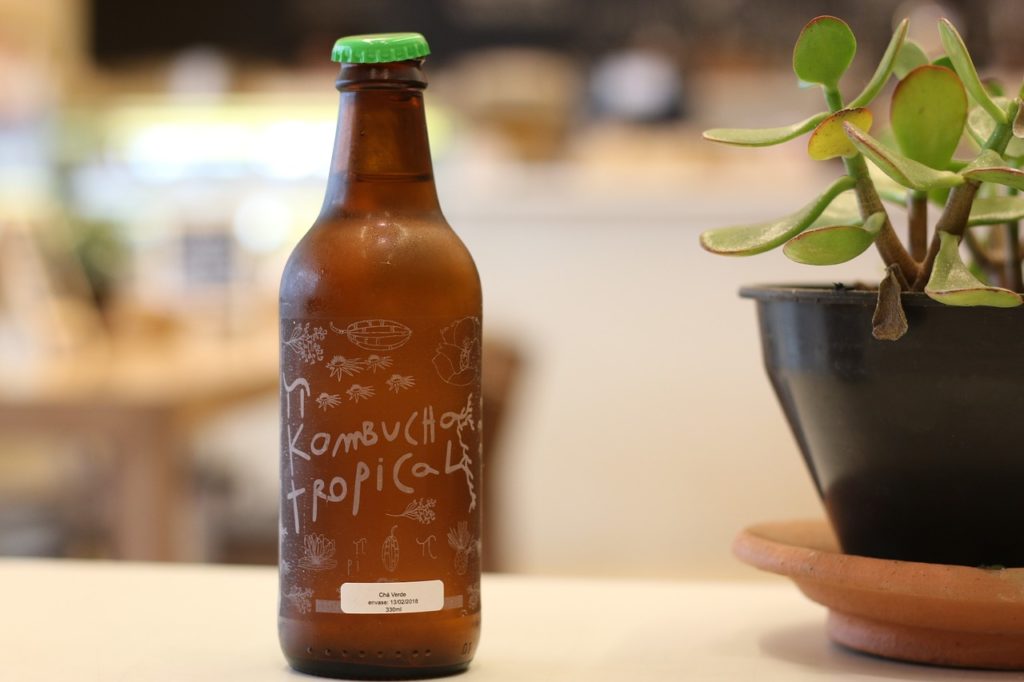
Have you ever heard the saying “you are what you eat”? In so many ways, our diet determines our overall state of being. But it’s even more true that “you are what your gut eats.”
Scientific studies increasingly show that microorganisms in the gut play a role in our physical and mental health, immunity and mood.
Over 100 trillion bacteria, yeasts, and viruses make up the gut flora, or gut microbiome, in the digestive tract.
Many of these microbes are helpful, even essential for human health. Other microbes can slow down the human body’s functions, if they are allowed to multiply.
An unhealthy gut is associated with inflammatory bowel disease, type 1 diabetes, obesity, type 2 diabetes, and arterial stiffness, among other diseases.
To improve your gut microbiome, here are simple, evidence-based ways to “feed” your beneficial bacteria.
Eat Probiotics
Probiotics are beneficial microorganisms (from pro and biota, meaning “for life”) that help to repopulate and balance the gut microbiome.
Many fermented products are a good source of live lactic acid bacteria. This type bacteria includes species that may benefit human health. Examples of probiotic-rich foods include:
- Fresh, sour dill pickles
- Kombucha
- Kimchi
- Miso
- Saurkraut
- Tempeh
Try Prebiotics
Probiotics feed on non-digestible carbohydrates called prebiotics. Prebiotics enable the healthy bacteria to grow and multiply in the gut.
Sources of potential prebiotic fiber include fruits, vegetables, cereals, and other edible plants.
Whole foods that contain prebiotic fiber include (but are not limited to!):
Tomatoes, artichokes, bananas, asparagus, berries, garlic, oats, legumes, and wheat.
Reduce Sugar Intake
Artificial sweeteners and dietary sugar may cause gut dysbiosis—an imbalance in gut microbes.
A 2018 study found that dietary sugar, like fructose and glucose, specifically silence a protein that is necessary for healthy gut bacteria colonization.
What’s more, animal studies suggest that the gut microbiome of animals fed a high-fat or high-sugar diet is more prone to circadian rhthym.
Artificial sweeteners, even though they don’t contain dietary sugar, also hurt gut microbiome health.
Several long-term studies suggest that artificial sweeteners like aspartame can cause a gut bacteria imbalance, leading to metabolic damage.
Metabolic damage can lead to obesity, type two diabetes, and cardiovascular disease.
Stress Less
Getting cut-off on the highway, criticized by a boss, or being stuck with an impending deadline can quickly raise our stress level.
Although it feels like stress is “all in our heads,” it actually impacts the digestive system and gut microbiome. A recent study found that a high stress level affected gut bacteria in a similar degree to a high-fat diet.
As Medical News Today puts it, “ a troubled brain can inform the gut, and a troubled gut can inform the brain.”
In other words, our gut health is affected not just by what we eat, but how we consciously manage our reaction to stress.
Some stressors include:
Sleep deprivation
Environmental stress like extreme heat, cold, or noise
Psychological stress
If you feel constantly stressed or overwhelmed, try deep breathing exercises, regular exercise, a consistent sleep routine and a healthful diet.
